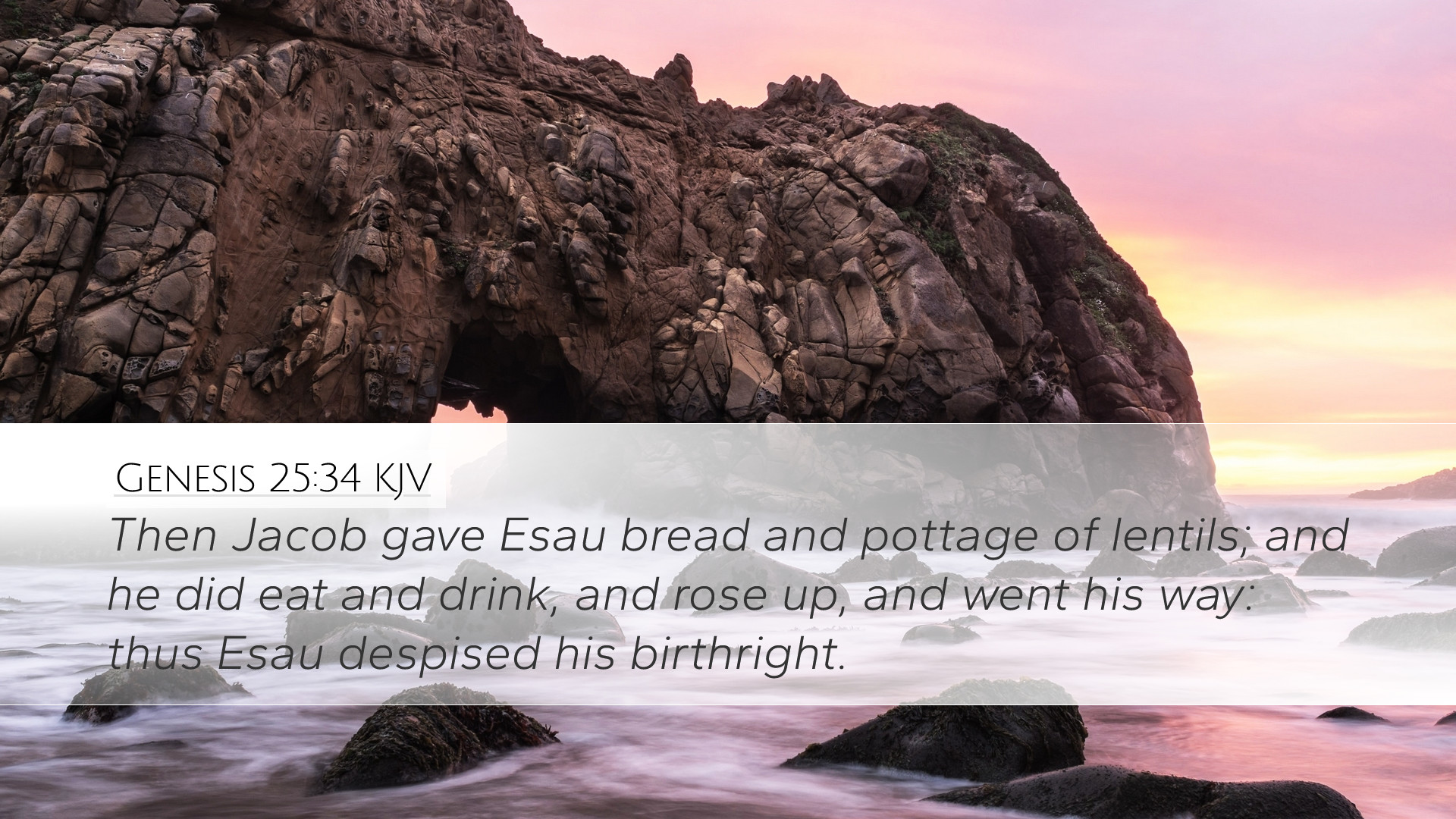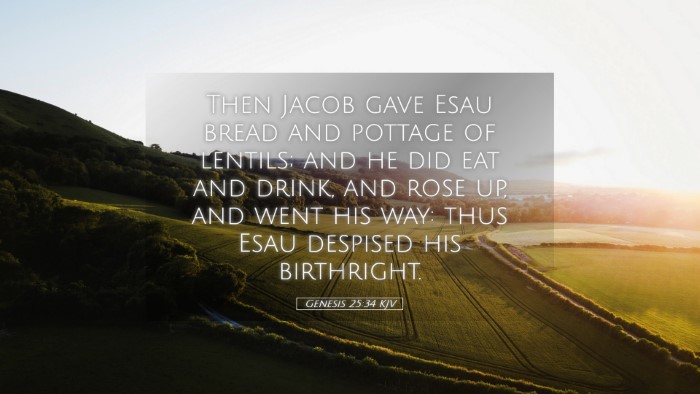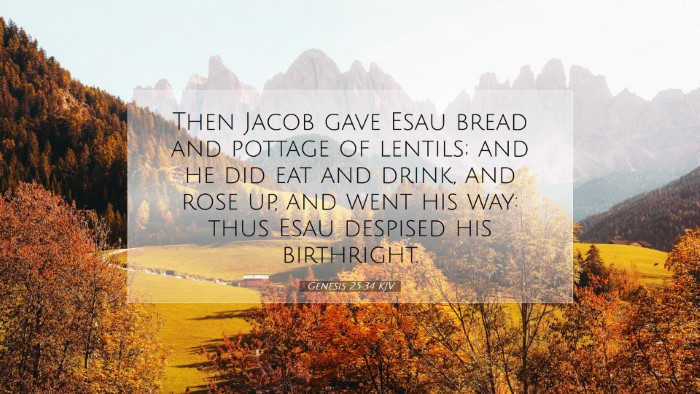Commentary on Genesis 25:34
Verse Text: "Then Jacob gave Esau bread and pottage of lentils; and he did eat and drink, and rose up, and went his way: thus Esau despised his birthright."
Introduction
Genesis 25:34 acts as a pivotal verse that encapsulates the themes of choice, desire, and the value of spiritual heritage. This commentary seeks to unpack these themes by drawing from the insights of public domain commentaries, notably those by Matthew Henry, Albert Barnes, and Adam Clarke. The backgrounds of Jacob and Esau provide rich material for understanding their actions and the consequences that follow.
Contextual Background
In the broader context of Genesis, this chapter describes the birth of Esau and Jacob, the twin sons of Isaac and Rebekah. The narrative of their birth is steeped in prophetic significance, as the Lord reveals that "the elder shall serve the younger" (Genesis 25:23). This prophecy plays a critical role in understanding the actions taken by both brothers later in life.
Verse Analysis
Jacob's Actions
Offering of Food: Jacob’s offering of lentil stew indicates not merely a moment of hospitality but a strategic act aimed at exploiting Esau's immediate need. Matthew Henry notes that Jacob was aware of the circumstances and used them to his advantage. This also reflects the strategic nature of his character, revealing a deeper desire for the birthright.
Esau’s Response
Immediate Gratification: Esau's willingness to trade his birthright for a meal highlights his disregard for the spiritual and cultural significance of the inheritance. Albert Barnes emphasizes that Esau's actions stemmed from a carnal perspective, prioritizing physical hunger over spiritual heritage. This moment serves as a poignant illustration of the proverb that warns against forsaking what is sacred for transient pleasures.
Theological Implications
- Value of the Birthright: The birthright within this biblical context symbolizes not only material blessing but a spiritual legacy. It includes the covenant promise and relationship with God, which are deemed far more valuable than temporal satisfaction.
- The Nature of Choices: Both Jacob and Esau’s choices reflect their characters. Jacob’s calculated approach shows a desire for spiritual riches, while Esau's impulsiveness exemplifies a carnal man living for the moment. Adam Clarke expounds on this dichotomy by stating that decisions made in haste often forsake lasting blessings.
- Covenantal Responsibility: The birthright carries with it responsibilities and a calling from God. Esau's forfeiture invites discussion on the seriousness of covenantal commitment and how easily it can be neglected for immediate gain.
The Broader Narrative and Lessons
This verse acts as a microcosm of the greater narrative of Israel's history and its theological implications. It raises essential questions about the nature of God’s calling and human agency. Scholars should consider the tension between divine sovereignty and human choice as illustrated in this passage.
Lessons for the Faith Community
- Prioritize Spiritual Matters: The actions of Esau remind believers to consider the eternal over the immediate. Church leaders can use this text to teach congregants about the importance of valuing their spiritual inheritance and remaining steadfast in their covenants with God.
- Awareness of Temptation: This narrative serves as a call to vigilance against temptation and the allure of instant gratification. It encourages Christians to seek the sustenance that only God can provide rather than the fleeting pleasures of the world.
- Understanding Divine Sovereignty: Ultimately, God's plan unfolds despite human follies. This reality should inspire confidence in believers regarding God’s overarching purposes, even when circumstances appear confusing.
Conclusion
Genesis 25:34 is more than a historical account; it is a critical theological lesson on the value of spiritual inheritance, the nature of human desires, and God's sovereign will. As we reflect on Jacob and Esau's choices, may it inspire the faith community to cherish and uphold their destinies with God, prioritizing eternal truths over temporal comforts.


